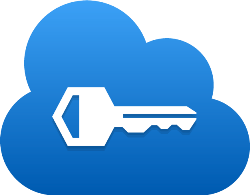Defining Private Cloud: What Law Firms Need to Know

Although Cloud Computing has become a common term, it still means different things to different people. What’s a Private Cloud, and why does it matter to legal entities?
Businesses are jumping to adopt “the Cloud”. Everyone wants the benefits that are touted – access your cases and files from anywhere, use smartphones and tablets to access from the courtroom, eliminate the need for servers and storage on-premises. Cloud computing promises to offload much of the IT burden from the firm onto the cloud provider’s shoulders, and let lawyers and staff spend more time doing revenue-generating legal work and less time fiddling with technology that doesn’t work.
Public Cloud providers like Amazon, Google and Microsoft offer a broad range of services, enabling smart IT teams to provision new applications in just minutes, but there are some big drawbacks for law firms. First, they replicate all your files, programs and data onto datacenters around the world – many of which are outside US borders. This could violate data governance and security mandates, as other countries do not need to abide by US laws and regulations. Additionally, most public Cloud providers don’t have the legal industry expertise to migrate your existing casework, files and email systems into their environment.
The Legal Private Cloud
Some in IT think of a Private Cloud as an on-premise data center that utilizes cloud-like features such as easy provisioning – hence their very own Private Cloud. However, that definition misses the mark – there is no offloading of IT headaches in that kind of private cloud.
For our purposes, the Legal Private Cloud is an offering that gives you the best of both worlds – the offloading of IT burdens and elimination of on-premises hardware, the ability to bring your own device and access matters and files from virtually anywhere with an internet connection – and most importantly houses all your information and programs on redundant, secure data centers that are located in the US and that employ the most stringent physical and network security that is available today.
What does it mean from a productivity environment? Take Abacus Private Cloud for example. Abacus will work with your firm to create a migration plan, get all your existing applications, casework and files transferred to their servers – including all your favorite applications whether Xero, Quickbooks or you-name-it, and eliminate the worries of keeping your technology infrastructure secuzre and up-to-date.